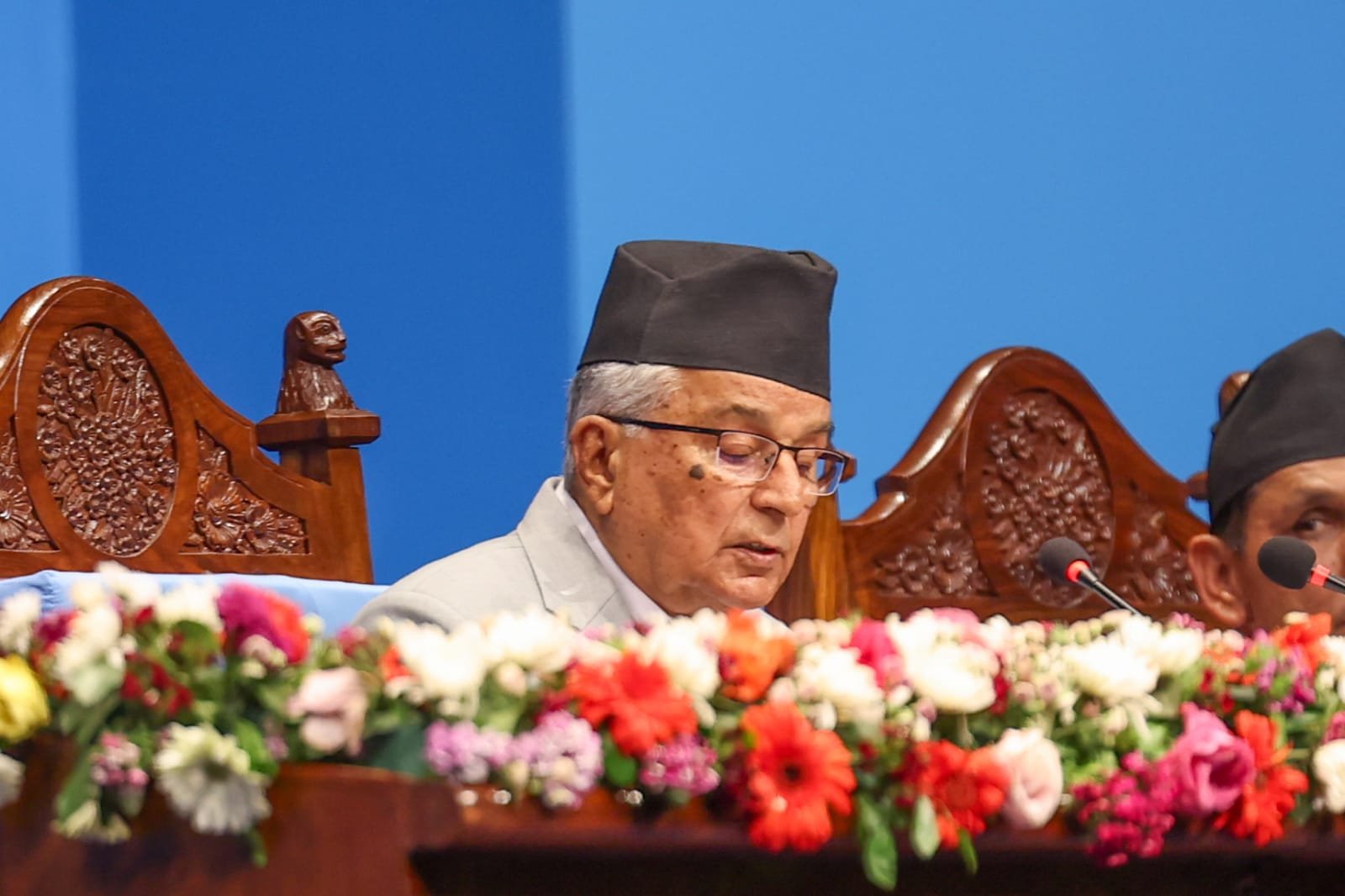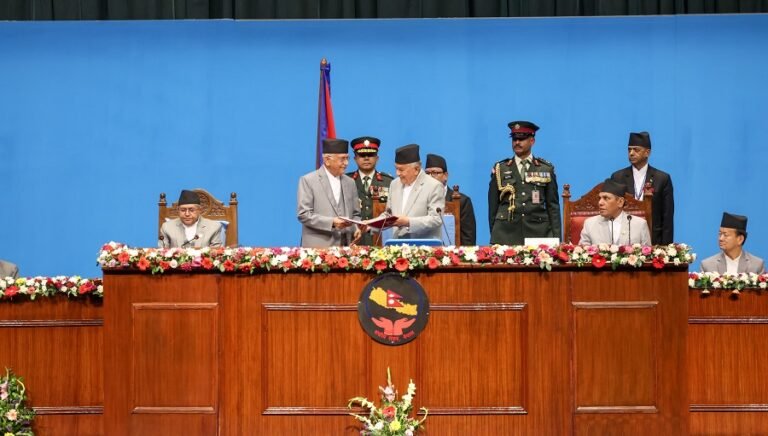Integrated Project Bank Nepal to Start in FY 2082/83
President announces plan to eliminate duplication in federal, provincial, and local development projects.

President Paudel presents Nepal’s FY 2082/83 policy agenda during joint session of Federal Parliament in Kathmandu.
Kathmandu: The Government of Nepal has announced the launch of an Integrated Project Bank Nepal beginning in fiscal year 2082/83. The initiative is designed to eliminate duplication in development projects across the federal, provincial, and local levels of government.
President Ram Chandra Paudel, while presenting the government’s new policy and program at the joint session of Parliament, said the Integrated Project Bank will make intergovernmental plans more effective and accountable.
He further stressed that through this new mechanism, federal, provincial, and local governments will implement their list of exclusive and shared powers more efficiently.
Why an Integrated Project Bank Matters
Nepal has long faced challenges in project management. Multiple ministries and local bodies often approve similar development projects, resulting in wasted resources, delays, and cost overruns. By introducing the Integrated Project Bank Nepal, the government hopes to:
-
End duplication in planning and resource allocation.
-
Improve transparency in project selection.
-
Strengthen coordination between federal, provincial, and local governments.
-
Ensure that priority projects receive proper funding and timely implementation.
According to government officials, this reform also reflects Nepal’s broader strategy to improve fiscal discipline and align development efforts with the nation’s long-term economic goals.
Part of Broader Reforms for FY 2082/83
The Integrated Project Bank is only one part of Nepal’s upcoming fiscal agenda. The government has also prioritized health insurance reform, digital banking expansion, and green energy development in its new policy framework.
Experts believe that if the Integrated Project Bank Nepal functions effectively, it could prevent the mismanagement of billions of rupees in public funds and boost public trust in governance. However, challenges remain, such as ensuring political commitment, adequate staffing, and monitoring mechanisms.

Please login to leave a comment.
Login to Comment